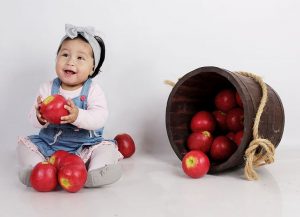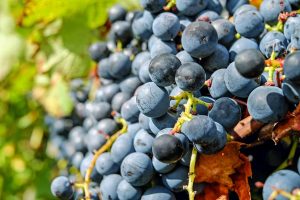Fruit for Babies and Toddlers

At first, I hesitated about writing this chapter on fruits, pregnancy, and children. Without being a woman, or having a child, it seems as if this wasn’t my place to have an opinion. Fortunately, I am able to do research in this area, and share the accounts of mother’s who have been successful feeding fruit to their children.
According to Unicef and the World Health Organization, babies should start eating solid foods around 6 months old, but not earlier. This is the time when babies need more energy and nutrients than at any other time in their life.
Mashed fruits are a great way to introduce babies to solid foods, cooked vegetables are another favorite option. There are other recommendations for grains and animal products, but these may not be as healthy as most mothers think.
According to the World Health Organization, babies should breastfeed up to the age of two. The average age when most mothers stop breastfeeding their children is around 17 months old. Some stop earlier, and others continue to breastfeed until their children are 4 years old.
There are countless mothers who swear by feeding their toddlers a fruit based diet. I have read accounts of mother’s who let their children eat fruit as early as 4 months old, without any negative results.
Feeding babies so much fruit, or so early in their life, might seem like an atrocity to many people. In my humble opinion, there is nothing wrong with letting infants eat fresh, organic fruit. It certainly sounds much better than feeding cow milk to human babies, or giving them some strange concoction that comes in a tin, labeled as “baby formula”.
Anne Osborne, author of “Fruitarianism, The Path to Paradise”, has been on a fruit based diet for over 27 years, and raised both of her children on the same diet. She recommends starting with mangoes, papayas, ripe persimmons, and de-seeded cherimoyas. The next fruits to include are ripe pears, ripe bananas, avocados, cherries, and fresh figs. When teeth start to come out you can include apples, pineapples, and grapes. She says its best to avoid dried fruits. (1)
Fruit for babies needs to be of the highest quality. The fresher the better, as they will contain more nutrients and life-force.
Anne notes that babies on a fruit based diet will appear very different than babies on standard diets. In Western Society a baby with rolls of adipose tissue is considered healthy, but according to Anne, and Arnold Ehret, author of the “Mucusless Diet Healing System”, what is seen as healthy fat is in reality pounds of decayed waste. When we look at other primates and their offspring, such as gorilla babies, orangutan babies, and gibbon babies, we find that they are all slim, with a fair amount of muscular definition. (2)
Previous Section:
Acknowledgments
Next Section:
Acknowledgments
Thank you for reading!
Please donate to help us publish this book.
PayPal: trevesbruno@gmail.com
Venmo: @Bruno-Treves
Sources:
(1) https://www.fruitgod.com/fruitarianbabie.html
(2) https://www.fruitgod.com/fruitarianbabie.html



